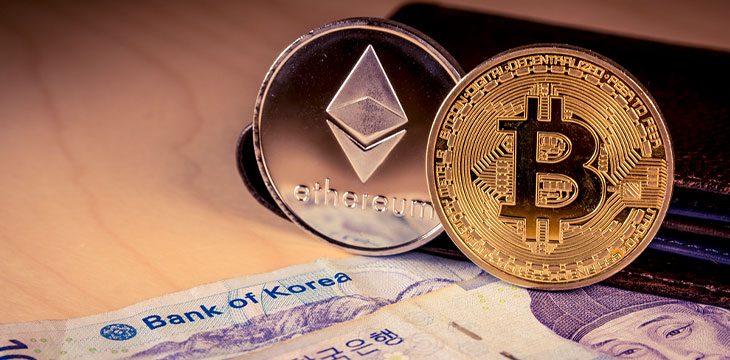|
Getting your Trinity Audio player ready...
|
Ethereum can’t scale to anchor a central bank digital currency (CBDC), the Bank of Korea has stated in its latest report on a digital won.
South Korea has been exploring the feasibility of a CBDC for years now, and mid this year, the central bank completed Phase 2 of its CBDC testing. It has now published the results of its extensive testing in which it weighed the performance of the digital won in cross-border transfers, domestic payments, and even in the non-fungible token (NFT) market.
As reported by Yonhap News Agency, the Bank of Korea found Ethereum to be too limited to anchor a national digital currency. In particular, the bank faulted Ethereum for its inability to scale, a bottleneck that has haunted the network since its launch.
“There will be some limitations in real-time processing of transactions during peak times,” the bank’s report says.
Ethereum has already exposed its limitations during peak times in several instances in the past. As far back as 2017, the network was paralyzed by the sudden rise of CryptoKitties, a blockchain game that led to a sixfold increase in pending transactions in just a few days.
More recently, Yuga Labs—the company behind the Bored Ape Yacht Club NFT collection—clogged the Ethereum network with the launch of its Otherside NFT collection, once again exposing the network’s soft underbelly. At some point, the gas fees spiked as high as $4,600 per transaction and cost users over $100 million in total over a few hours.
Aware that Ethereum has a scaling ceiling, and a very low one at that, the Bank of Korea turned to some of the scaling solutions that the Ethereum community has been exploring. These include rollups and zero-knowledge proofs, and while they improved the network in some aspects, they still came with their own limitations.
These limitations are pushing the Bank of Korea to consider going the centralized ledger route, Governor Chang Yong Rhee revealed in a recent speech.
While Ethereum may have failed as a CBDC network, Korea would be best served by exploring a public blockchain network that scales infinitely at the lowest industry fees and has a stable protocol—BSV. Unlike Ethereum, Bitcoin SV can process tens of millions of transactions a day without even the slightest hike in fees.
Korea is just the latest country to reveal its CBDC development as more central banks strive to keep up with the rise of digital payments. And with most central bankers still apprehensive about a completely decentralized digital asset like BSV, they are borrowing some of Bitcoin’s tenets and devising their own centralized version in CBDCs.
CBDCs will introduce several advantages to the banking system and the consumers, according to the nChain CBDC Playbook. This includes seamless policy implementation, efficient and cost-effective payments, economic stability, and enhanced transparency.
In our newly published #CBDC #Playbook, we explore in detail:
– the drivers and challenges of CBDCs
– the benefits they bring
– the strategic and technical considerations around their design and implementation.Get exclusive access to the Playbook here:https://t.co/OQTIt9fmzn pic.twitter.com/n1Yu1kwzVo
— nChain (@nChainGlobal) August 31, 2022
The Playbook, which nChain published two months ago, also delves into the drawbacks of a CBDC, such as the risk of bank disintermediation and consumer privacy issues. The latter has become a real concern, especially with most central banks choosing to develop their CBDCs on private and centralized ledgers.
In his speech, the Bank of Korea governor admitted that privacy is taking a backseat with the digital won, stating that “in our design for the experiment we chose to improve compliance at the sacrifice of privacy.”
Watch: The BSV Global Blockchain Convention presentation, CBDCs and BSV

 03-03-2026
03-03-2026 




